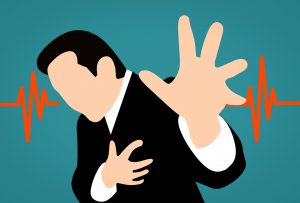The future of cardiac care — how are smart devices getting integrated into everyday health management
Summary
Cardiovascular disease (CVD) burden is increasing globally. According to Global Burden of Diseases (GBD), between 1990 and 2019, the number of individuals afflicted by CVDs surged from 271 million to 523 million. Coming to the Indian context, it is estimated that about 5-6 lakh people die every year due to sudden cardiac death (SCD), and …
Cardiovascular disease (CVD) burden is increasing globally. According to Global Burden of Diseases (GBD), between 1990 and 2019, the number of individuals afflicted by CVDs surged from 271 million to 523 million. Coming to the Indian context, it is estimated that about 5-6 lakh people die every year due to sudden cardiac death (SCD), and a good proportion of them are under the age of 50.
Stroke is the second most common cause of death in India. About 1,85,000 stroke cases are reported every year in India with nearly one stroke every 40 seconds and one stroke death every 4 minutes. In light of these alarming trends, the imperative focus shifts towards enhancing monitoring, early detection, and prevention strategies for cardiac-related ailments.
Recent technological advancements are fundamentally transforming our approach to cardiac care. With the advent of smart devices, the landscape of cardiac care is evolving, offering new avenues for everyday health management. These innovations not only empower patients to actively participate in their healthcare journey but also provide healthcare providers with invaluable tools for monitoring and managing cardiac conditions more effectively.
Smart Watches and ECG Patches
Smart watches equipped with advanced sensors allow individuals to monitor vital signs such as heart rate, activity and sleep patterns. This continuous monitoring capability facilitates early detection of irregularities and enables proactive intervention, ultimately improving cardiac health outcomes. While they are beneficial for achieving a healthy lifestyle, to accurately monitor heart conditions a continuous ECG monitoring for long term is needed.
The ECG traces the electrical activity of the heart and is used by clinicians and cardiologists for accurate diagnosis of heart conditions. Many smartwatches give a 30-second snapshot of ECG and are only capable of capturing permanent heart conditions. Many cardiac conditions are transient and don’t produce symptoms, which cannot be captured by a 30-second ECG. Moreover, clinicians would like to know the exact amount of time a cardiac condition is present to provide personalised treatment plans.
Innovative technologies such as ECG patches are revolutionising cardiac monitoring and management. These discreet, skin-mounted devices offer a non-invasive way to track vital signs and detect cardiac arrhythmias. An ECG patch monitors the complete electrical activity of the heart, monitoring every single heartbeat for days to weeks. It provides a detailed and accurate heart electrical activity report that can detect several cardiac conditions, which may not show any symptoms or might last only for a short time.
Early detection of cardiac conditions, such as rhythm disorders, leads to immediate treatment, avoiding the occurrence of life-threatening conditions. For example, the risk of getting stroke is 5 times higher when a patient has a heart rhythm problem. With ECG patch monitoring, the problem can be detected accurately, and treatment can be initiated early, which significantly reduces the risk of stroke or other serious health conditions.
Live 24×7 ECG
Live 24×7 ECG and vitals monitoring is a game changer for immediate patient care. When patients in hospital wards, emergency departments and recovering from home after surgeries are live monitored, doctors can immediately identify patients having issues and initiate treatment changes. A multiple lead ECG is a must to ensure clinical quality for accurate diagnosis. It entails the clinical supervision of cardiologists/clinicians for a deeper insight into one’s cardiac health in order to provide a precise, timely diagnosis and management of cardiac problems. By transmitting patient data to the cloud for instant review by healthcare providers, these smart patches facilitate timely intervention and personalised treatment strategies.
Combining multiple vitals with cardiac monitoring also allows to cover adjacent health challenges. Over 80% of patients with abnormal cardiac rhythms have obstructive sleep apnea. With multi vital and ECG patch monitoring, earlier diagnosis of sleep apnea, heart failure and other chronic conditions is feasible.
Looking ahead, the integration of population specific AI models, sensor and computing technologies promises to further enhance the capabilities of wearable devices in cardiac care. Future iterations of smart devices are expected to offer more sophisticated functions, enabling comprehensive cardiovascular monitoring and management. As patients become more engaged in their healthcare journey, the future of cardiac care will undoubtedly be shaped by the seamless integration of smart devices into everyday health management practices.
—The author, Srinivasan Murali, is Founder and CEO at SmartCardia, a medtech player, which developed a revolutionary AI platform and other novel devices for cardiology and remote patient monitoring. The views expressed are personal.

Elon Musk forms several ‘X Holdings’ companies to fund potential Twitter buyout
3 Mins Read
Thursday’s filing dispelled some doubts, though Musk still has work to do. He and his advisers will spend the coming days vetting potential investors for the equity portion of his offer, according to people familiar with the matter









 Listen to the Article
Listen to the Article  Daily Newsletter
Daily Newsletter




